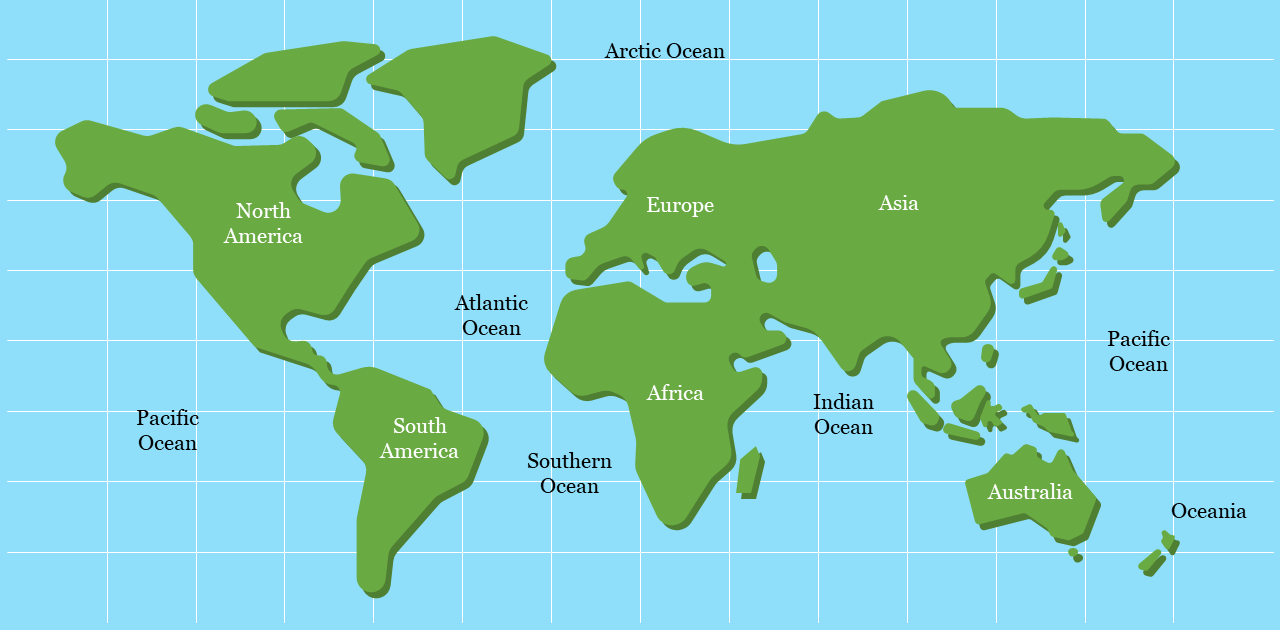Biodiversity & Environment
One Ocean Summit
- 12 Feb 2022
- 7 min read
For Prelims: One Ocean Summit, United Nation, World Bank, World Ocean Day, Decade of Ocean, Climate Change
For Mains: Conservation, Environmental Pollution & Degradation, Government Policies & Interventions, Significance of the Oceans, Initiatives to Protect the Ocean
Why in News?
Recently, the Prime Minister addressed the high-level segment of the One Ocean Summit.
- The summit was organised by France in Brest, France in cooperation with the United Nations and the World Bank.
- The summit was addressed by various other Heads of State and Governments from countries like Germany, the United Kingdom, South Korea, Japan, Canada among others.
What is the Importance of Oceans?
- The ocean covers more than 70% of the surface of our planet, yet too often remains on the sidelines of major European and international events.
- The ocean is a regulator of major environmental balances, and climate in particular, a provider of resources, an important enabler of trade, and an essential link between countries and human communities.
- However, it is now seriously threatened by numerous pressures, such as the effects of climate change, pollution or the overexploitation of marine resources.
- In an effort to mobilise the international community and take tangible action to mitigate such pressures on the ocean, France has decided to organise a One Planet Summit dedicated to the ocean.
What is One Ocean Summit?
- The goal of the One Ocean Summit is to raise the collective level of ambition of the international community on marine issues.
- Commitments will be made towards combating illegal fishing, decarbonising shipping and reducing plastic pollution.
- Will also focus on efforts to improve governance of the high seas and coordinating international scientific research.
What was India’s Stand at the Summit?
- India has always been a maritime civilization. India’s ancient scriptures and literature talk about the gifts of the oceans including marine life.
- India’s security and prosperity are linked to oceans. India's ''Indo-Pacific Oceans Initiative'' contains marine resources as a key pillar.
- India supports the French initiative of a ''High Ambition Coalition on Biodiversity Beyond National Jurisdiction''.
- The coalition gathers parties which are committed, at the highest political level, to achieve an ambitious outcome of the ongoing negotiations on a Treaty of the High Seas (“the implementing agreement on Biodiversity Beyond National Jurisdiction”), under the auspices of the United Nations.
- The “BBNJ Treaty”, also known as the “Treaty of the High Seas”, is an international agreement on the conservation and sustainable use of marine biological diversity of areas beyond national jurisdiction, currently under negotiation at the United Nations.
- This new instrument is being developed within the framework of the United Convention on the Law of the Sea (UNCLOS), the main international agreement governing human activities at sea.
- India is committed to eliminating single-use plastic. India recently undertook a nation-wide awareness campaign to clean plastic and other waste from coastal areas.
- Three hundred thousand young people collected almost 13 tons of plastic waste.
- India will be happy to join France in launching a global initiative on single use plastics.
- Recently, the Ministry Of Environment Forest And Climate Change has notified the Plastic Waste Management Amendment Rules, 2021 which prohibit specific single-use plastic items which have “low utility and high littering potential” by 2022.
- India has also directed its Navy to contribute100 ship-days this year to cleaning plastic waste from the seas.
Are there any Other Global initiatives to Protect Oceans?
- United Nations Ocean Conference: The 2017 UN’s Ocean Conference sought to mobilise action for the conservation and sustainable use of the oceans, seas and marine resources.
- Next conference is scheduled to be held in 2022.
- Decade of Ocean Science for Sustainable Development: The UN has proclaimed a Decade of Ocean Science for Sustainable Development (2021-2030) to support efforts to reverse the cycle of decline in ocean health and gather ocean stakeholders worldwide behind a common framework that will ensure ocean science can fully support countries in creating improved conditions for sustainable development of the Ocean.
- World Oceans Day: June 8th is World Oceans Day, the United Nations day for celebrating the role of the oceans in our everyday life and inspiring action to protect the ocean and sustainably use marine resources.
- India- Norway Ocean Dialogue: In 2019, the Indian and Norwegian governments agreed to work more closely on oceans by signing a MoU and establishing the India-Norway Ocean Dialogue.
- India’s Indo-Pacific Oceans Initiative (IPOI): It is an open, non-treaty based initiative for countries to work together for cooperative and collaborative solutions to common challenges in the region.
- IPOI draws on existing regional architecture and mechanisms to focus on seven pillars: Maritime Security, Maritime Ecology, Maritime Resources, Capacity Building and Resource Sharing, Disaster Risk Reduction and Management Science, Technology and Academic Cooperation and Trade Connectivity and Maritime Transport.
- GloLitter Partnerships Project: It is launched by the International Maritime Organization (IMO) and the Food and Agriculture Organization of the UNs (FAO) and initial funding from the Government of Norway. It is aimed to prevent and reduce marine plastic litter from shipping and fisheries.





